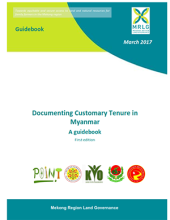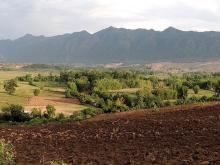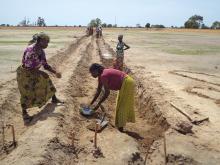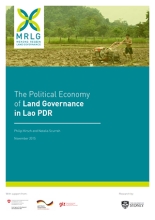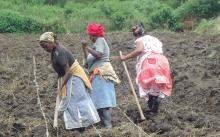Land Library
Bem-vindo à Biblioteca do Land Portal. Explore nossa vasta coleção de recursos de acesso aberto (mais de 74.000), incluindo relatórios, artigos de revistas científicas, trabalhos de pesquisa, publicações revisadas por pares, documentos jurídicos, vídeos e muito mais.
/ library resources
Showing items 1 through 9 of 12.This Case Study looks at the implementation of the Vacant, Fallow and Virgin Lands Management Law (VFV Law) in seven villages in Sagaing Region, to assess the practices on the ground and how the law impacts the land tenure security of smallholder farmers.
This guidebook provides conceptual, legal and practical tools and resources to help civil society organizations guide communities through the process of documenting customary tenure at the local level.
Secure tenure of farming and forest land is increasingly recognised as an important factor of household food security and nutritional status. This is borne out by a study by the Laotian Land Issues Working Group.
On the 11th May 2012, the Committee on World Food Security of the United Nations adopted the Voluntary Guidelines on the Responsible Governance of Tenure of Land, Fisheries and Forests (VGGT).
A project in Burkina Faso has given a clear demonstration of what supporting family farms can achieve in terms of poverty alleviation and rural development. One important success factor was the transfer of land to farmers, accompanied by a secure land-tenure policy adapted to their needs.
In Cambodia, the majority of the population is still composed of smallholder family farmers. 54% of the total labour force is employed in agriculture. They have access to 3.6 million ha of land, representing 19% of the country’s total land.
This country level analysis addresses land governance in Laos in two ways. First, it summarises what the existing body of knowledge tells us about power and configurations that shape access to and exclusion from land, particularly among smallholders, the rural poor, ethnic minorities and women.
Increasing prices for agricultural commodities offer a historic opportunity to intensify production systems for small-scale farmers in many developing countries.
The livelihoods of many rural dwellers are dependent on having secure and equitable access to land. Tenure security is also a prerequisite for sustainable land management. The massive interest of commercial investors has increased the pressure on land globally.


